Explaining the Solo Life
Published on November 22nd, 2015
Sporting a beard, sunglasses and a handkerchief in the breast pocket of his suit, Alex Thomson cuts a pretty cool figure. He could be James Bond’s brother. Despite that, his legs seem a little shaky – the wind is gusting strongly. And Thomson is ten meters (33 ft) above the sea, up the mast of his yacht, which is canted at an angle of 50 degrees. The mast-runner bends his knees, jumps and dives into the water.
The “mast walk” video has been viewed over 1.8 million times. This and other such antics, which include a penchant for highly publicized race failures, have turned the 41-year-old Briton into one of the world’s best-known sailors.
The Brit will be on the start line for the 2016-17 Vendée Globe, skippering his new 4 million euro Hugo Boss in the singlehanded nonstop race around the world. Here he talks about the fear of death, mental strength and the huge awareness of feeling infinitely small.
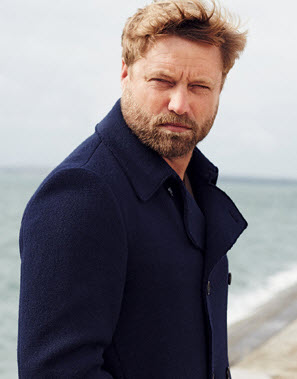 For the Vendée Globe you will spend almost three months alone on the high seas. Can you describe what that’s like?
For the Vendée Globe you will spend almost three months alone on the high seas. Can you describe what that’s like?
When everything goes well, if you’re moving as fast as you hoped, then it’s the best feeling in the world. When things go wrong, it’s hell on earth for me.
How do you cope with the loneliness?
For me it’s a question of attitude. I just think to myself: “Three months? What are three months? It’s not really long at all.” How did you spend the last three months? They passed quickly enough, didn’t they?
But in three months I would have met and spoken with lots of people…
We’re all used to filling our lives with stuff from morning to night. We spend our time worrying about our families, our friends, our work or our mortgage. We always find something to fill our lives with. But I get the opportunity to spend three months on a boat and concentrate on one thing only. Mentally that’s very refreshing. And I’m not really alone: on the boat I can pick up the telephone and talk with my family, my team or my wife.
What is the hardest aspect of the race?
The Southern Ocean. It starts getting difficult below the 40th parallel south. We spend four or five weeks there during the regatta. It’s a dangerous place, on account of the giant waves and very strong winds. You’re completely on your own, there’s no one to help you. And that’s exactly how you feel.
Are you afraid of these seas?
When I took part in my first Vendée Globe in 2004, I actually thought I could win the race in the Southern Ocean. I was young. When you’re young, you’re pretty fearless but you have zero experience. The older you get, the more you lose your nerve – but you have much more experience. So it all balances itself out [laughs]. Nowadays, I think the Southern Ocean is the place where you can lose the race. Down there it’s all about survival.
Under circumstances like these, can you still get a sense of enjoyment from the whole thing?
The Southern Ocean makes you acutely conscious of your own mortality. That can be very wearing on your nerves. The sky, the sea, everything tells you: “This place is dangerous.” But once you’ve sailed around Cape Horn, your boat’s bow is finally heading towards the finish – and everything suddenly changes. The sea is calmer, the sky is friendlier, and you start to feel better. It’s as if the weight of the world has fallen from your shoulders, even if you only really lose the weight from your shoulders when you reach the finish.
What’s the greatest challenge for you personally during the race?
The most difficult thing is constantly having to weigh up risk. I have to become a risk manager. I make decisions on a minute-by-minute basis – and if I make the wrong one, it could cost me my life. I have to manage my body, my food intake, my sleep, my mood, my ability to make good decisions. I sleep 20 to 40 minutes every two to four hours. And when I’m in the biting cold of the Southern Ocean, and I have to work flat out, I burn around 7,000 calories a day. During the last Vendée Globe I lost a total of 8 kilos [approx. 18 lb]. It may sound strange, but it’s really not easy to make sure you eat enough food and get enough sleep.
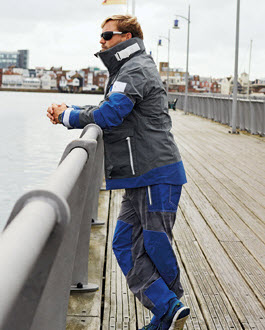 You’re preparing for the race with the help of a sports psychologist. Does he help you improve your mental resilience?
You’re preparing for the race with the help of a sports psychologist. Does he help you improve your mental resilience?
I don’t think you can really train mental strength. Either you have it or you develop it. I know I’ve got it. But I do talk to the psychologist about the difficult situations I’m going to have to face during the race. In the Southern Ocean, for example, the waves can reach 15 meters [50 ft] in height. And I’m r iding down these waves at 30 knots [about 35 mph]. That’s when you switch to autopilot and head down to the cabin – and whatever you were feeling outside the boat is a hundred times worse inside. At this moment, your brain tells you you’re going to die. But you have to sleep. In situations like this you have to wind down, slow your heart rate, scale down the adrenaline in the body.
In order to do this, I developed a visualization technique with the sports psychologist, which lets me imagine myself not on the boat but sitting up in t he clouds, looking down on the boat. From there I see the huge waves, but I also see t hat there are no icebergs around and that the boat appears not to be in any danger at all. Creating this mental picture helps me get to sleep.
It’s like a game of chess.
You are a strong sailor with lots of experience – but what do you see as your greatest weakness?
I’m a very emotional person, I wear my heart on my sleeve. And during a race my emotional state is very dependent on how the race is going. It doesn’t matter how tired I am, how hungry or anything else: the only thing that matters are the intermediate race standings. The problem is, we are sent the intermediate standings several times a day, and if I see I’m in a poor position, that incites me to become less disciplined and work even harder. I change my familiar routines and, as a result, I get more tired. If things are going really well, the effect can be even worse, because then I see myself as virtually invincible. And when that happens, you can quickly lose concentration and end up making a mistake that costs you the race.
What role do tactics play in a long regatta?
A huge role. It’s like a game of chess. Participants’ boats all race at about the same speed, although my new boat will hopefully be faster (laughs). We all experience similar weather and use computers equipped with the same software. In a race that lasts 80 days or more, you have an advantage if you get ahead at the start. It’s much harder throughout the duration of the race for anyone who falls behind. That’s why from day one, everyone is focused on avoiding any errors.
After living in such exceptional circumstances for three months, is it difficult to come home and lead an ordinary life again?
Last time I had huge problems adapting to a normal sleep pattern. It took weeks and I found it very frustrating. But apart from that? I consider what I do to be entirely normal. I come back and wonder what all the fuss is about. After all, I’m just doing my job. When you’re a sailor on board a small boat and you’ve lost sight of land, you realize how tiny we are as humans. I know that other skippers feel that too. You understand how insignificant we are in the general scheme of things. That’s a pretty humbling experience. When I come home, I look forward to the company of friends, other people – and above all to the party.
You once took Formula 1 world champion Lewis Hamilton with you on board your yacht, and you have sailed in Monaco with his teammate Nico Rosberg. Did either of them show talent as skippers?
What I noticed was that racing drivers are very good at focusing on the task in hand. You just have to tell them to concentrate and wait for the signal – and they do it. Most ordinary mortals can’t do that.
Source: Mercedes Benz


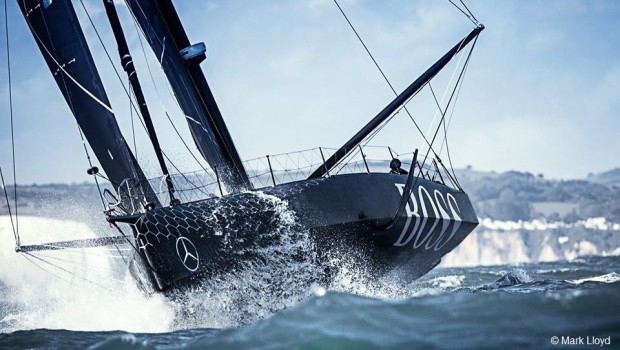

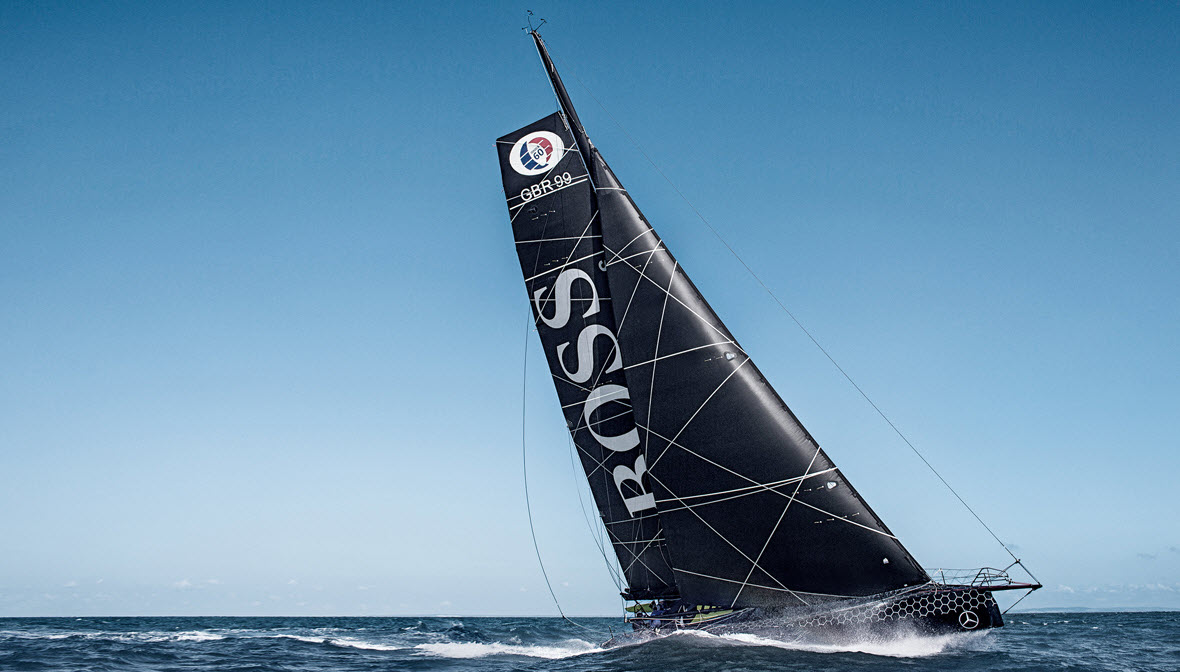


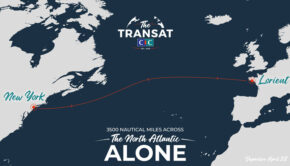
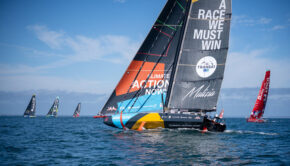
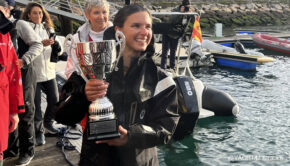
 We’ll keep your information safe.
We’ll keep your information safe.